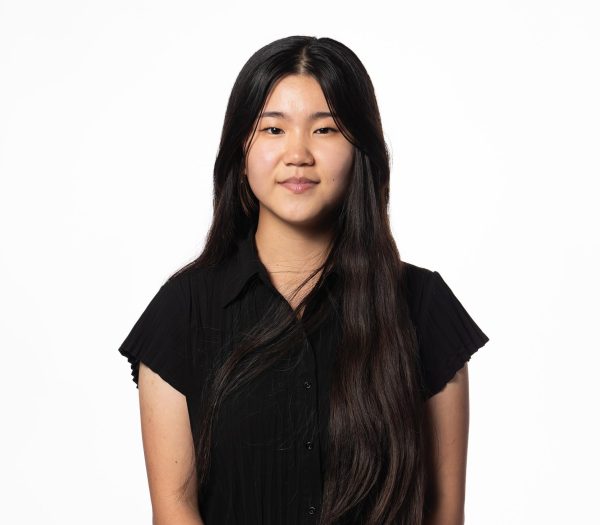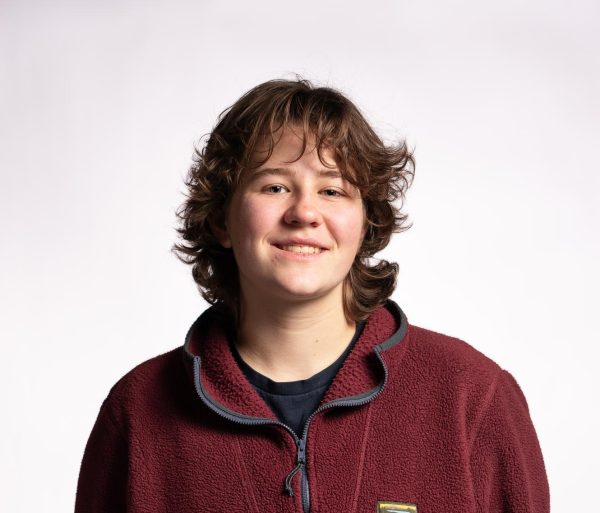In the bustling kitchen of Ladue High School, the sound of sizzling pans and the aromatic blend of spices fill the air. Utensils lay scattered on shiny stainless steel countertops as students mix, chop and sautè their ingredients. The kitchen hums with anticipation as students collaborate and laugh, excitedly waiting to taste their creations.
Family and Consumer Sciences (FACS) teacher April Dalton was introduced to the culinary world in her first year of studies at Southwestern Illinois College in 2011.
“I was a barista for a long time,” Dalton said. “[But] one day, the chefs in the back were low staffed so I decided to go back and ask them if they needed any help.”
From that moment on, Dalton fell in love with cooking and began receiving training from the other chefs while learning the intricacies of the job.
“People either like or dislike kitchen life, and I loved it,” Dalton said. “I loved the heat and the stress and the pressure of it all. It’s just totally different [from] your normal job.”
After discovering her passion for the culinary arts, she began working as a full-time chef for Bon Appétit, a catering company that provides services to corporations and colleges, including Washington University in St. Louis.
“WashU had an absolutely amazing dining program with global cuisine from all over,” Dalton said. “That’s where I got most of my experience.”
In addition to dining halls, Dalton also worked at large catering events, including the 2016 presidential debate, where she and her team served around 100,000 people.
“Working with the other chefs was probably my favorite part,” Dalton said. “Coming in, we would all have a family meal together where we’d cook together, eat together and then we would start service. Those moments were great.”
Along with dining and catering, Bon Appétit also hosted several culinary events for students.
“Doing innovative things was really fun because WashU really supported [us] financially,” Dalton said. “We would do pop-ups of plant-forward meals [to try] to get kids to eat less meat.”
Although Dalton had officially become a chef and began to instruct staff in the kitchens, she had always had the underlying desire to teach. Therefore, she decided to pursue an education degree at Fontbonne University.
“I used to teach music in marching band and design marching band shows so I always wanted to teach in a classroom,” Dalton said. “I [just] didn’t know that you could teach cooking at a high school [level] until I was really researching a career change.”
After finishing her education degree in 2015, Ladue happened to be hiring for a FACS teacher, so she received the position while still working full time at the kitchen.
“I would come here, work from 5 a.m. to 2:30 p.m., and then I would leave and go to WashU to work 3 p.m. to 11 p.m. and do it all over again,” Dalton said.
Although it may seem difficult to go straight from a professional chef to a high school teacher, Dalton had a surprisingly smooth and easy transition.
“The level of intensity to be a chef and to run a restaurant is the exact same as teaching,” Dalton said. “I was so worried about making sure that the kids were having fun, so when it didn’t seem like they were having fun, it would break my heart. I realize [now] that it doesn’t have to be fun 100% of the time. There’s a place for just relaxing, reading and actually processing.”
While she quickly got used to the intensity of the job, Dalton had some struggles adapting to the schedule.
“The most difficult part was getting used to a normal schedule,” Dalton said. “We’re used to having the Monday through Friday nine to five, but I was working three to four, sometimes 24 hours and that was normal for me.”
Fashion and child development teacher Kimberly Boyles is a fellow teacher in the department. She and Dalton often work together to plan ideas for their classes.
“[Dalton is] incredibly hardworking and innovative,” Boyles said. “She comes up with some really cool projects that I would never have thought of, so I appreciate being able to collaborate with her and bounce ideas off of her. We’ve worked pretty well as a team.”
Being a FACS teacher for 18 years, Boyles recognizes the importance of practical and food management skills on students’ lives and futures.
“I think it’s pivotal to have those basic culinary skills and, beyond that, safety and sanitation,” Boyles said. “People don’t always realize what we could be doing to make ourselves and our food more healthy.”
When COVID-19 hit, Dalton decided to return to school and get her masters degree in food business and sustainability at the Culinary Institute of America.
“It was mostly business design,” Dalton said. “We [focused on] innovative ways of coming up with businesses that solve problems and handle food concerns and issues around the world.”
For the last residency in her master’s program, Dalton and 60 other students in the program rented an Airbnb in Colorado to complete their final project. There, they spent one month focusing on the idea of food sustainability by upcycling ingredients from local restaurants.
“Someone [went] around to all the restaurants in the area and collected whatever scraps were leftover that week,” Dalton said. “We’d get things like root ends from celery, the skins from carrots and the shells from shrimp. Then we’d come back to our Airbnb and experiment with the things that we could create with them.”
Through her time in culinary school and the kitchens, Dalton has gained a broader perspective on food sustainability and the future of the culinary scene.
“[Upcycling] is the future of the food industry,” Dalton said. “[In the future], we’re probably going to wind up eating nothing but plant-based and upcycled [food].”
Throughout all of her jobs and schooling, Josh Klenke, Dalton’s boyfriend of 10 years, has witnessed and accompanied her as she made changes in her career.
“She was worked to death, but never gave up,” Klenke said. “[There were] small setbacks but she always picked herself back up and kept going.”
Dalton and Klenke met for the first time when they were working as chefs for Bon Appétit.
“We met at WashU, in the kitchens,” Dalton said. “At first, I didn’t like him at all because we both liked to do [things] our way. We’d fight all the time but then we would go out afterwards [for coffee] and realized that we actually really enjoyed each other.”
Although their career paths eventually went separate directions with Klenke focusing on getting into the health industry, they still made sure to find time for each other.
“She was working full time [and] going to school full time,” Klenke said. “[But during] the time she was free of all that stuff, she still managed to go out and we’d see music, eat food, go out to the nightlife and be outdoors people.”
For Dalton, Klenke has been a source of companionship and encouragement throughout her entire culinary and educational journey thus far.
“He’s been super supportive. If there’s something I didn’t know how to do, he would teach me how to do it and vice versa,” Dalton said. “He was a pretty solid rock of support when it came to all of my [career] decisions.”
Looking forward, Dalton plans to continue teaching at a high school level and does not foresee returning to the professional kitchens in the future.
“My body can’t do it anymore,” Dalton said. “That life is so physically hard on you. You get carpal tunnel syndrome and arthritis [in] your hands if you’re not using the proper techniques.”
Although she doesn’t anticipate being a full time chef anymore, she has many exciting plans for the future that have stemmed from her roots as a barista.
“I think at some point, I’m going to wind up opening up my own business,” Dalton said. “By day it will be a collaborative environment. At night, there [will be] a secret door that leads to a tapas wine bar — coffee shop by day, party by night.”
Bananas Foster Recipe
Ingredients:
- Bananas
- Brown Sugar
- Cinnamon
- Nutmeg
- Banana Liquor
- Unsalted Butter
- Dark Rum
- Vanilla Ice Cream
Directions:
Heat large skillet over medium heat; melt butter, then add brown sugar and stir until melted. Add in sliced bananas, and cook for 1 minute. Add the cinnamon and nutmeg. Pour in the rum and banana liquor and flambé the sauce. Baste the bananas with the sauce until the flames burn out. Add vanilla ice cream to a bowl and spoon the cooked bananas and sauce on top, serve immediately.



![April Dalton cooks Bananas Foster, a dessert consisting of bananas sautéd in butter, sugar and cinnamon. The bananas were cooked over a fire with rum and served atop a scoop of vanilla ice cream. “[Cooking] is not just like reading a piece of paper and making it happen," Dalton said. "There's a lot more involved and I don't think people realize that when they get into the kitchens."](https://laduepublications.com/wp-content/uploads/2024/02/CHEFDALTONCOVERFINAL-Large.jpeg)
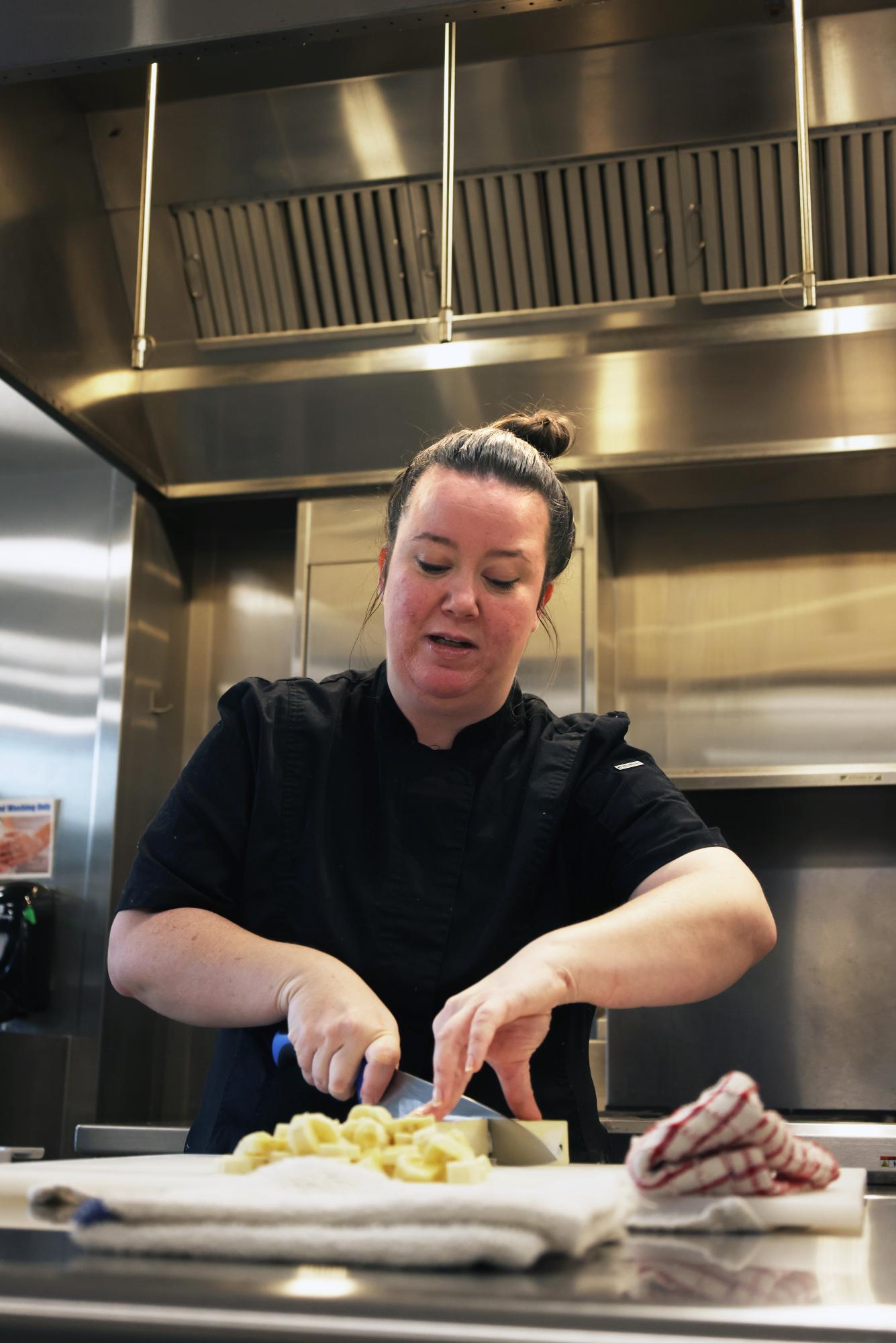
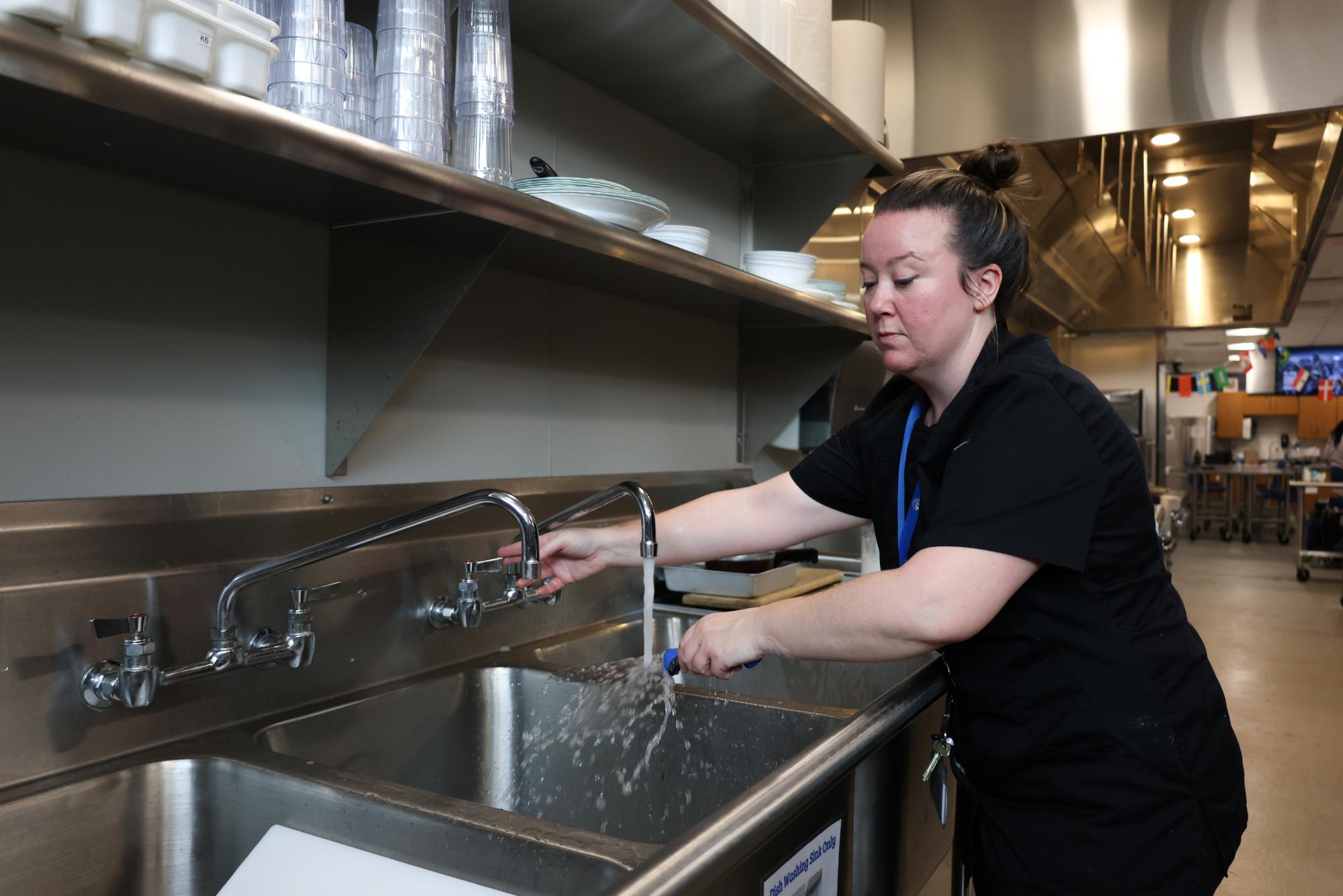
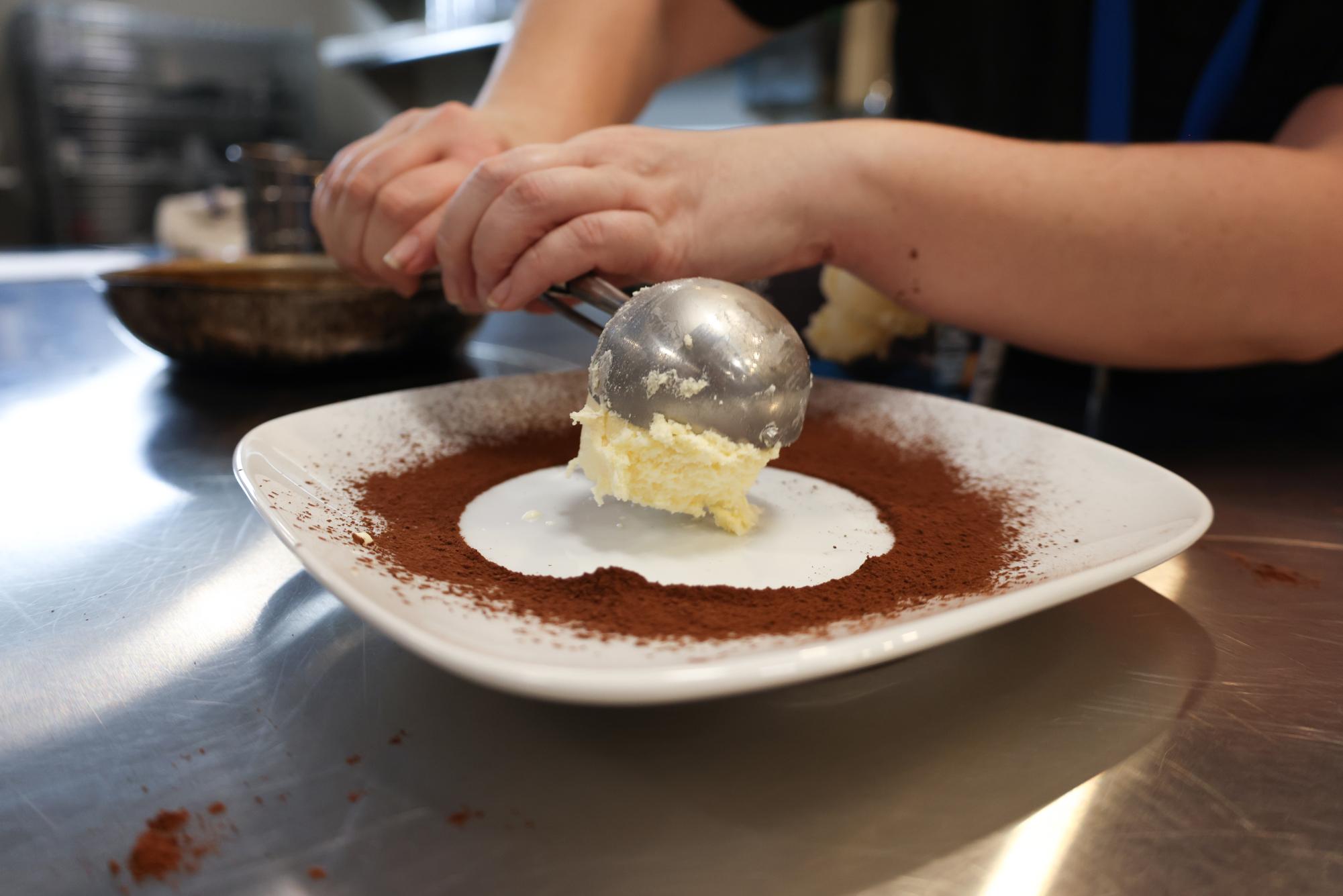
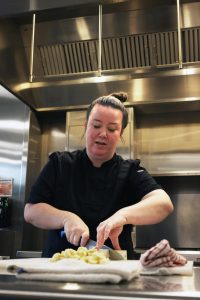
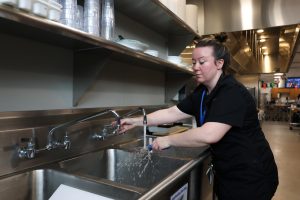
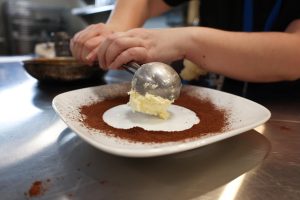


![School resource officer Rick Ramirez sits in his office. He usually spends little time in his office throughout his day of work, focusing on other issues. “Where our students are, I try to be,” Ramirez said. “Sometimes I get off at 2:45 p.m. when nothing’s going on, or sometimes I get off at 10 p.m. [Those are] my hours.”](https://laduepublications.com/wp-content/uploads/2024/12/Hsiao_20241203_ID_RickRamirez_007-799x1200.jpg)
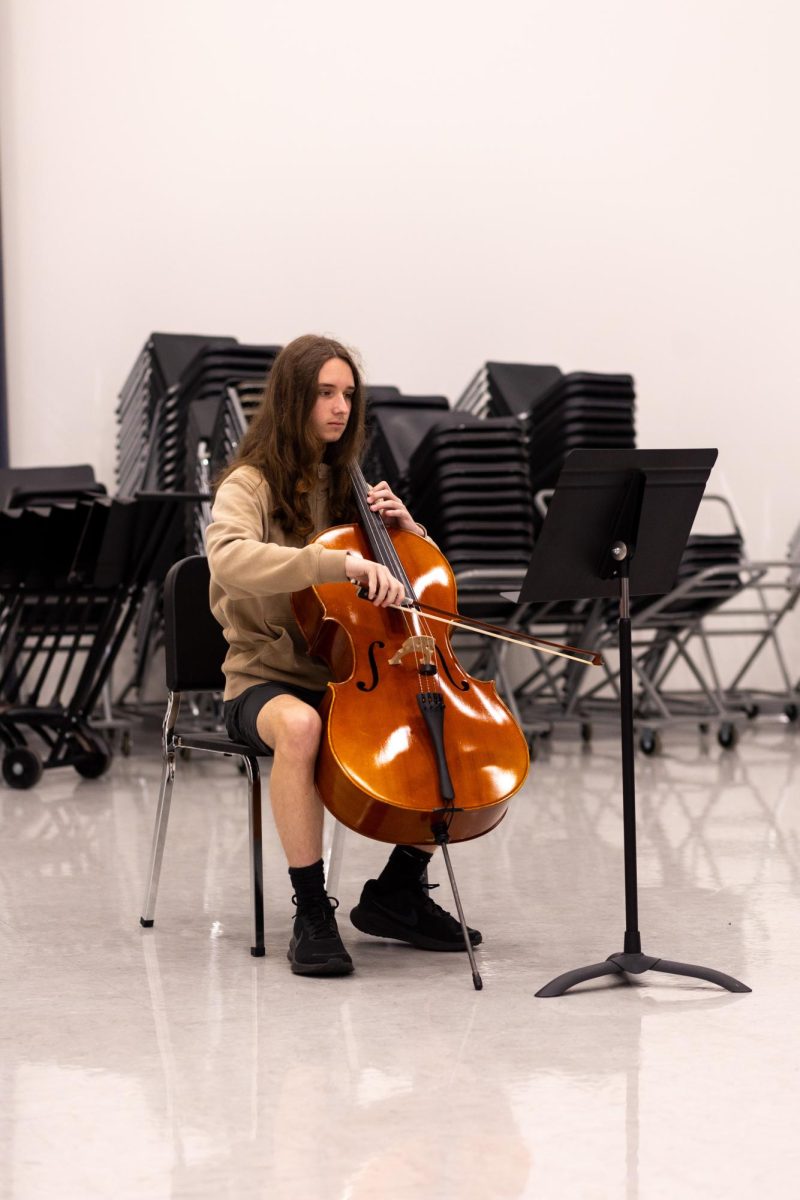
![Reva poses in front of her home and address plaque. After reuniting with her father and grandparents, she has made many new memories and retained her culture. “We have a lot of Indian cooking going on,” Reva said. “I also like telling people about Indian food, mainly because that’s something that really connects me to [Mumbai].”](https://laduepublications.com/wp-content/uploads/2024/12/At-Home-1200x799.jpg)

